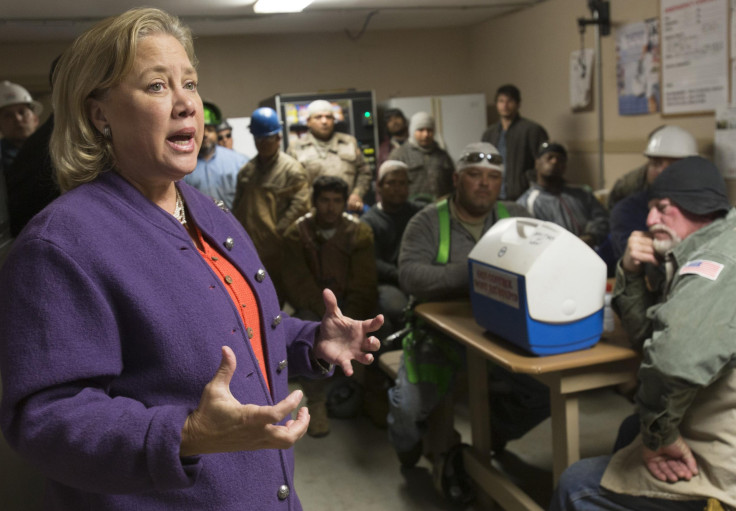Midterm 2014: Landrieu Going Down With A Fight

Update 9:15 p.m. EST: Early results in Louisiana's runoff election for the U.S. Senate show incumbent Democrat Mary Landrieu trailing challenger U.S. Rep. Bill Cassidy. Polls closed at 8 p.m. CST (9 p.m. EST). With just seven of 4,018 precincts reporting, Cassidy led Landrieu 64 percent to 35 percent. Landrieu was trailing by more than 42,000 votes.
Original post:
WASHINGTON -- After more than a decade of defying the odds, U.S. Sen. Mary Landrieu, D-La., looks unlikely to hold on much longer. Voters in the Pelican State head to the polls Saturday to decide who will represent them in the Senate, and the odds aren’t looking good for Landrieu. U.S. Rep. Bill Cassidy, R-La., appears poised to win in a landslide.
Landrieu is being described as the last Southern Democrat, and while she’s going down fighting, as indicated by the Advocate in Baton Rouge, the political reality of representing a red state now appears to be too much for her to overcome, as suggested by the newspaper.
The midterm election cycle was bad for Democrats in the Senate. All the other Democrats who represent red states -- Kay Hagan of North Carolina, Mark Pryor, of Arkansas and Mark Begich of Alaska -- have already been toppled. And the tides of conservative opposition to Washington don’t appear to be turning for Landrieu, an 18-year incumbent who hails from a Louisiana political dynasty. A poll conducted by JMC Polling Nov. 20 found a 15-point lead for Cassidy.
Landrieu’s campaign was besieged with criticism that she was out of touch with her state, spending too much time Washington; her Capitol Hill home was ridiculed in the local press; and her use of charter flights to return to the state was lambasted.
She has also been drastically outspent in the race. The Democratic Senatorial Campaign Committee pulled funding for television ads after the general election in November, and the Democratic National Committee has done little to help her. All the while, Cassidy has been bolstered by strong backing outside the state.
“I am extremely disappointed” about the DSCC’s decision, Landrieu told the Washington Post. “You know, they just walked away from this race.”
Cassidy and Landrieu are facing a runoff election because they finished first and second in the Nov. 4 primary election, but neither got the necessary 50 percent of the vote to be declared the winner. In that race, Landrieu won 42 percent of the vote and Cassidy won 41 percent.
But it’s likely almost all the remaining 17 percent of the vote will go to Cassidy in the runoff. In the general election, Republican Rob Maness took 14 percent of the vote and has since endorsed Cassidy.
Landrieu was successful in one goal: She secured more than 94 percent of the African-American vote in the general election, and her campaign was able to drive black voters to turn out at the polls.
But she lost miserably among white voters. She won only 18 percent of the white vote in the general election. And without almost double that number, it is impossible for her to win the state.
Landrieu hasn’t given up. The week after the general election, she took to the Senate floor to force a vote on the Keystone XL pipeline, which would carry crude oil from Canada to the Gulf Coast. It was part of her effort to show Louisiana voters that her seniority empowered her to get things done.
To match the effort, House Republicans quickly moved to hold a vote on the pipeline as well, allowing Cassidy to attach his name as the sponsor of the bill. It passed the House easily.
But the plan appeared to backfire when it made it to the Senate. Landrieu and the group of Democrats she was working with fell one vote short of approving the pipeline. All the Republicans voted with her.
Landrieu left Washington defeated, but returned to Louisiana attempting to stave off the apparently inevitable. She has continued to mount an aggressive campaign, forced to fundraise on her own. Her campaign has spent the past few weeks attacking Cassidy for billing a state-run hospital for hours worked on days he was in Washington attending committee hearings and voting, as reported by the Times-Picayune.
But it all seems now to be little more than a last, desperate stab at securing the seat she has occupied since winning it in 1996.
© Copyright IBTimes 2024. All rights reserved.





















